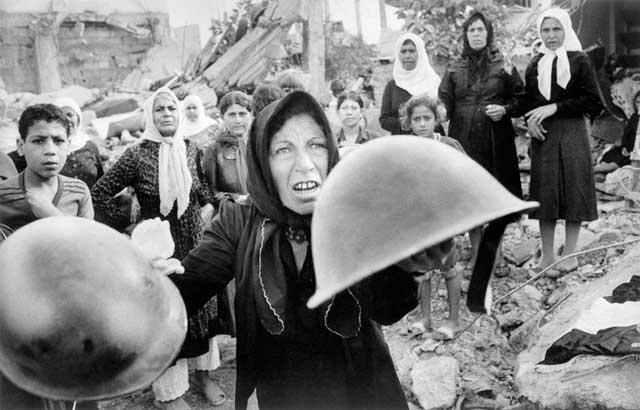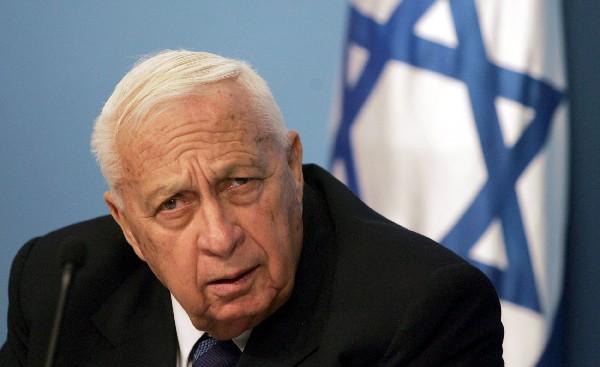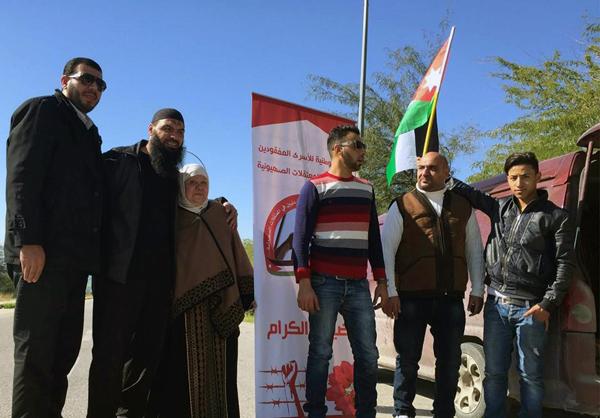RAMALLAH — Palestinians on Saturday hailed the death of former Israeli premier Ariel Sharon, describing him as a “criminal” but regretting that he is now permanently beyond the reach of the law.
Human Rights Watch (HRW) also lamented the fact Sharon was never prosecuted, particularly over his role in the 1982 massacre of hundreds of Palestinians by Israel’s Lebanese Phalangist allies in Beirut’s Sabra and Shatilla refugee camps.
“It’s a shame that Sharon has gone to his grave without facing justice for his role in Sabra and Shatilla and other abuses,” HRW’s Middle East Director Sarah Leah Whitson said in a statement.
“For the thousands of victims of abuses, Sharon’s passing without facing justice magnifies their tragedy.”
Sharon had been in a coma for the past eight years since suffering a massive stroke on January 4, 2006, just months after pulling all troops and settlers out of the Gaza Strip. His condition worsened last week and he died at a hospital near Tel Aviv on Saturday.
The news prompted an outburst of celebration in Khan Younis in the southern Gaza Strip, where around a hundred Islamic Jihad members burned pictures of him and handed out sweets, a spokesman said.
For the ruling Islamist Hamas movement, which seized power in Gaza in 2007, just two years after the Israeli pullout, Sharon’s death “is a lesson for all tyrants”.
“Our people are living at a historic moment with the disappearance of this criminal whose hands were covered with the blood of Palestinians and their leaders,” said Hamas spokesman Sami Abu Zuhri.
Among those killed by Israel during Sharon’s term in office was Hamas’ wheelchair-bound spiritual leader, Sheikh Ahmed Yassin, who was killed in an air strike on Gaza City in 2004.
Similar sentiments were expressed in the West Bank, where a senior official also blasted him as a “criminal” and accused Sharon of being responsible for the mysterious death in the same year of veteran Palestinian leader Yasser Arafat.
“Sharon was a criminal, responsible for the assassination of Arafat, and we would have hoped to see him appear before the International Criminal Court as a war criminal,” said Jibril Rajub, a senior official of the ruling Fateh Party.
Arafat was Sharon’s nemesis and the burly Israeli leader often expressed regret at not killing him during the 1982 invasion of Beirut.
After the Palestinian leader fell mysteriously ill while under a tight Israeli siege in 2004, dying in France several weeks later, rumours swirled that Israel had poisoned him.
Israel has repeatedly denied the allegations.
A history ‘written in Palestinian blood’
“We had hoped he would be brought before the International Criminal Court (ICC) as a war criminal,” said Rajub, who was head of the Palestinian security services when Sharon sent troops to the West Bank in a mass operation to wipe out militant groups in 2002.
“Sharon’s history is blackened by his crimes and written in the blood of the Palestinians,” said Jamal Huweil, a former militant from the Al Aqsa Martyrs’ Brigades, an armed offshoot of Fateh.
“The curse of our blood will follow him to his grave,” said Huweil who is now a member of the Palestinian parliament, the PLC.
Human Rights Watch said that the failure to bring Sharon to justice had in no way helped the search for peace.
“His passing is another grim reminder that years of virtual impunity for rights abuses have done nothing to bring Israeli-Palestinian peace any closer. For the thousands of victims of abuses,” Whitson said.
As minister of defence, Sharon was forced to resign following the Beirut camp killings of 1982 after an Israeli commission of inquiry found he had been “indirectly responsible” for the massacre.
The commission found that Sharon had disregarded the “serious consideration... that the Phalangists were liable to commit atrocities”, recommending that he be dismissed as defence minister, HRW said.



















